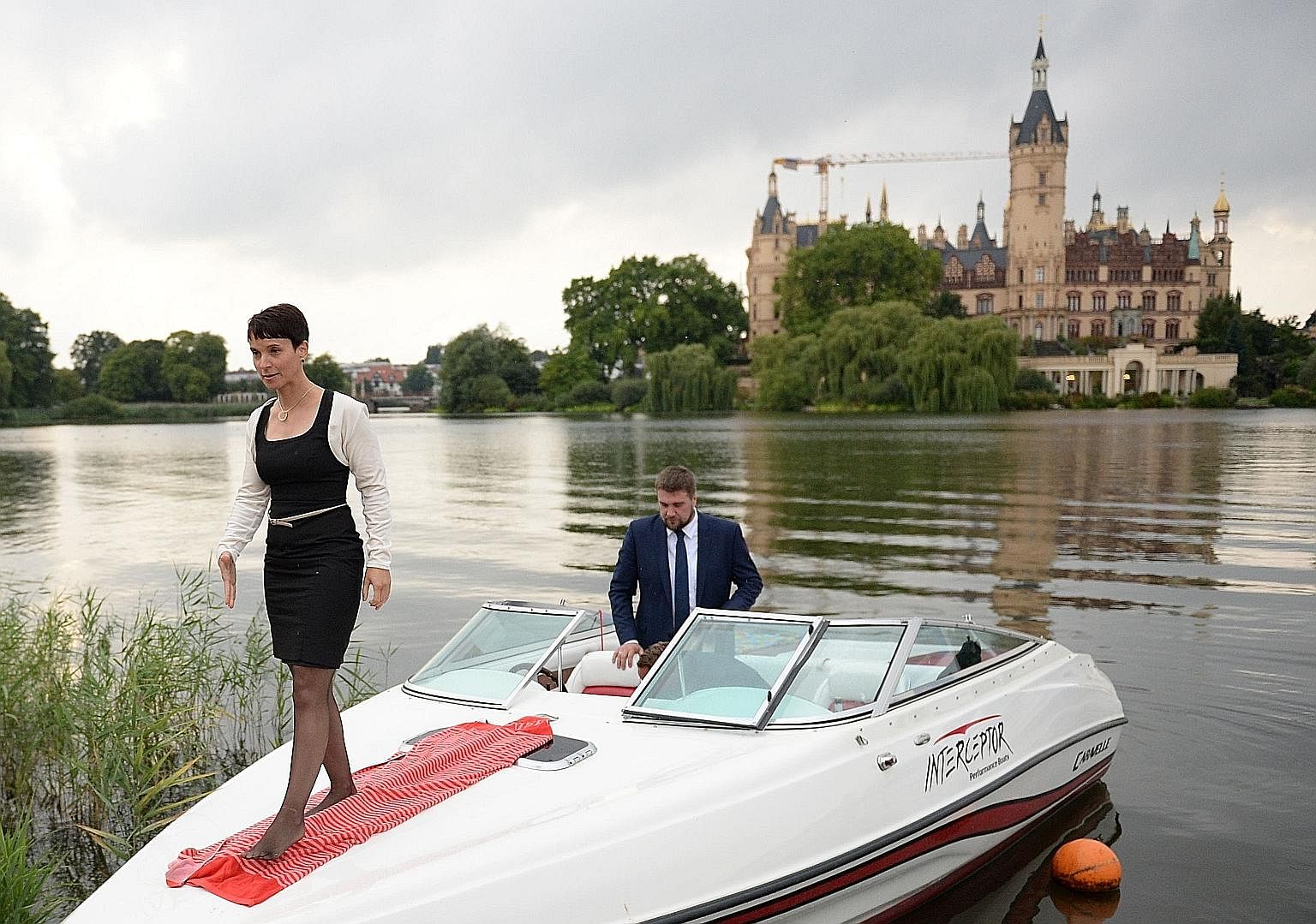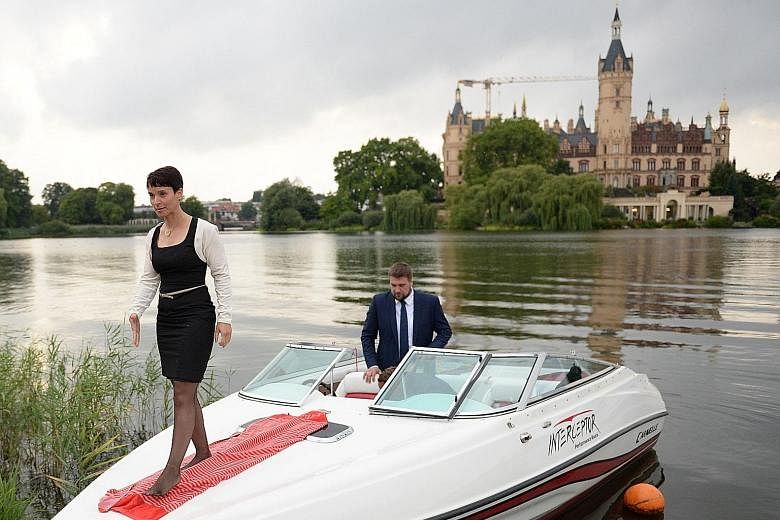German Chancellor Angela Merkel's open-door refugee policy has come under fire from politicians within her own ranks, after her ruling Christian Democratic Union (CDU) was pushed into third place in regional elections in one of the country's constituent states by a right-wing, populist anti-immigrant party which attracted one in five of all voters.
Acknowledging that immigration was the key reason for the stinging electoral defeat, Mr Markus Soeder, a senior Merkel ally from the powerful German state of Bavaria, warned the Chancellor that "it is no longer possible to ignore people's views on this issue". And Mr Stephan Mayer, the CDU's top parliamentary spokesman, went further in calling the election results "a catastrophe".
With all the ballots from Sunday's elections in the state of Mecklenburg-Western Pomerania counted, Dr Merkel's CDU scored only 19 per cent of the vote, its worst result and well behind the anti-immigrant and anti-Islam Alternative for Germany party (AfD as it is known by its German acronym) which gained 21 per cent, or the centre-left Socialists who emerged top with 30 per cent of the votes.

The former East German state of Mecklenburg-Western Pomerania accounts for only 2 per cent of Germany's overall population and only 1.3 per cent of the country's gross domestic product.
But the state was held out as an example of the regeneration of the former communist East; its domestic tourism industry is booming, something which should have benefited Dr Merkel. And it also happens to be Chancellor Merkel's home state; her parliamentary constituency is there. So, her defeat in Mecklenburg-Western Pomerania is both psychologically important and politically humiliating.
And it's the nature of the rise in the populist AfD vote which worries Germany's establishment. The party was created only in 2013, initially to oppose German-backed financial bailouts for poorer southern European countries. Yet under the leadership of Ms Frauke Petry, a right-winger who took over last year, it shifted its emphasis to anti-immigration questions, and it has thrived: It is now represented in the regional Parliaments of seven other German states.
Analysis from the Mecklenburg-Western Pomerania vote indicates that, while the AfD drew many votes from Chancellor Merkel's CDU, it derived most of its support from people who regularly don't vote; that means that the party has great potential for growth.
The party feeds on the anti-establishment vote, and on the anger felt by poorer voters about Dr Merkel's decision last year to admit more than one million asylum seekers. The AfD now looks sure to smash past the 5 per cent vote threshold required for representation in the federal Parliament at the general election scheduled for next year, and could potentially transform Germany's political landscape.
Dr Merkel's immediate task is to reassure her party that, despite the awful results in Mecklenburg-Western Pomerania and the deeply divisive nature of her immigration policies, she is still the centre-right's only feasible candidate for chancellorship in next year's elections.
Dr Merkel refuses to apologise for her immigration decision; she continues to claim that, when faced by the waves of refugees last year, Germany had no other honourable choice but to admit them.
Nevertheless, the Chancellor has largely disowned her previous "We Can Do It" slogan on accepting migrants, and has vowed instead to expel newly arrived people who fail to qualify for asylum status.
Dr Merkel is now also careful to rebut accusations that migrants take resources away from ordinary Germans: "We did not reduce benefits for anyone in Germany as a result of the aid for refugees," she told voters. Still her rhetoric obviously failed to impress voters, so pressure on Dr Merkel to toughen immigration policies in order to prevent the further rise of the AfD is intensifying.
"We need a cap on refugee numbers and expedited repatriation processes," said Mr Andreas Scheuer, who runs the Bavarian wing of Dr Merkel's party and whose support is crucial for Chancellor Merkel's re-election bid. "We simply can't give in and watch how a party built on attracting protest voters profits from the failures of the federal government in Berlin," he added.
Whenever faced with a critical choice, Dr Merkel's first instinct is to prevaricate, weighing the options. The Chancellor has benefited from the fact that she was in China for the Group of 20 meeting when the Mecklenburg-Western Pomerania vote took place, and has continued to maintain a discreet silence on the matter.
But few doubt her ability to lead the CDU into next year's elections. For despite all her trouble, she continues to tower above all other German politicians.


